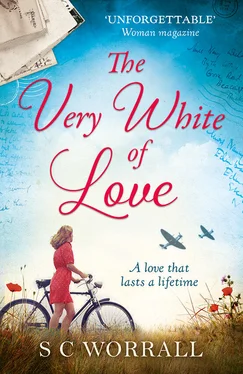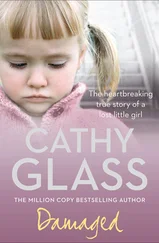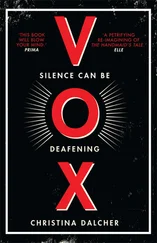1 ...7 8 9 11 12 13 ...19 Nancy sips her elderflower cordial and tries to smile. ‘When we lived in Dorset, he used to cycle round to Thomas Hardy’s house to do his taxes.’
‘How fascinating!’ Aunt D. twinkles.
‘Hardy was a terrible grump.’ Nancy laughs.
‘No wonder!’ chimes in Tom. ‘After writing all those tragic novels.’
Molly stares into her empty Bloody Mary glass. ‘I heard from Robert!’ she announces. ‘You know, of course, my brother is Robert Graves.’ She jangles her bangles at Charles for a fill up. ‘They’ve fled to Majorca. Robert’s in a terrible state; hates France; hates London; says if there’s a war, he will emigrate to America.’ She wrinkles her nose. ‘Pennsylvania or somewhere ghastly like that.’
‘That’s patriotic!’ Martin jibes.
Molly frowns. ‘Well, he did do his part in the last war, as you know. I’m sure you’ve read his work, Nancy.’
‘He was even declared dead, wasn’t he?’ Nancy fiddles with her drink.
Molly frowns at her, but Uncle Charles grins. ‘Yes! There was even an obituary in The Times ! Robert had great fun sending out letters to everyone after he got back from France, saying that reports of his demise had been greatly exaggerated.’
Everyone laughs heartily except Molly, who merely smiles, like a cat that has just got the cream, then turns to Nancy. ‘Do you have anyone famous in your family?’
12 FEBRUARY 1939
Oxford
He wakes late, lies back in the pillows, watching the sunlight play on the wall of his room at Teddy Hall. There’s a hint of spring. The way the sun slants over the roof. The song of a thrush in the tree outside the window. Martin rolls over, opens a drawer in the bedside table and takes out a sheath of letters. Since term started in mid-January, their lives have diverged again and the post, an occasional telephone call and, on one occasion in late January, a telegram, saying he was coming up to London for a day and would she meet him at the Café Royal, have been their only means of staying in touch.
He opens the letter on top of the bulging sheath, then sinks back into the pillows and reads: ‘My darling Tino . . . ’
His eyes travel across the page, following the blue river of her handwriting, as it flows from her heart to his. He imagines standing behind her, watching her as she writes at her desk, up in her bedroom at Blythe Cottage, her red hair spilling over her shoulders, the faint rasp of the nib on the paper, like a mouse nibbling a cracker. Imagines the curves of her body, the narrow waist and full hips. A body like a violin, he thinks.
A loud banging on the door rouses him from his daydream. Martin leaps out of bed and opens up. A surly-looking young man with a face like a slab of dough stands in the doorway.
‘Clean your room now, Mister Preston?’ The voice is gruff, unfriendly.
‘Where’s Frank?’ Martin stares at the man.
‘Flu.’
Martin waits for him to say more. But he just stands in the doorway, glowering.
‘And you are?’
‘Dudley.’ He glares at Martin. ‘Your new scout.’ He pauses. ‘For now, anyway.’ Then, almost mockingly: ‘Sir.’
‘I see.’ Martin sits up, straightens his hair, irritated. ‘Let’s hope Frank makes a speedy recovery.’
The scout lumbers into the room, like an elephant, banging into a chair and nearly knocking over a standing lamp. He clears a few cups and saucers away into the sink, with a clatter; folds a newspaper; picks one of Martin’s shirts off the floor and drops it on a chair; kicks an upturned corner of the carpet flat. Then he goes to the fireplace, thrusts the poker into the ash like a sabre, rattles the grate, then slams the poker down, goes to the door and opens it. Without so much as a word to Martin, he steps out, slamming the door behind him with a bang.
Martin jumps up and starts to pull on his clothes. He’s been asked to be a steward at a motor trail in the Chilterns. He wishes he had said no. He has a law book to read, not to mention a long overdue essay.
He picks up a dark brown sweater, drops it back on the chair, goes to the chest of drawers and takes out a bright yellow wool one. He pulls it over his head, checks himself in the mirror and realizes it is inside out, takes it off, turns it the right way round, inserts his head through it, then picks up his grey herringbone, Raglan overcoat. Though the sun is shining, standing around for hours on a hillside in south Oxfordshire is bound to be frigid. He pulls his Teddy Hall scarf off the hook next to the door, winds it round his neck, and stuffs his chamois driving gloves into the pockets of his overcoat.
He has left the Bomb at a friend’s house in Fyfield Road, so he decides to head north along the river. A tomcat on a sunny wall watches him with amber eyes. A rugby ball arcs through the sky, chased by a gaggle of skinny boys in muddy shorts. What is she doing today? At church with Peg and LJ? Reading? Next week is Valentine’s Day, their first together. Which reminds him: he has not sent a card.
As he reaches the river, he pauses and looks back at the dreaming spires of the city. The first snowdrops are showing. A fisherman on a campstool waits for the telltale twitch of his float. A sculler sweeps by, his oars fracturing the latticework reflection of bare branches in the water. Two lovers hurry past, talking in Spanish. He turns his face to the sun, closes his eyes, revelling in its warmth on his skin. Oxford. On Sunday. In love.

The motor trial site is on an escarpment of the Chilterns, near the village of Crowell. Seeing the ranks of gleaming Alvis, MGs and Talbots, Martin rather wishes he had entered himself.
‘Martin!’
Martin turns to see his friend, Hugh Saunders, striding along the hillside. He’s in the year above Martin at Oxford: a tall, broad-shouldered twenty-one-year-old, with an angular face, cropped brown hair and narrow-set eyes. Next to him is a short, almost painfully skinny girl in a flimsy coat. ‘Hugh! Are you taking part?’
‘No. Strictly spectator.’ They shake hands, then Hugh makes the introductions. ‘Martin Preston, Sacha Richardson.’
Martin shakes her hand. ‘Pleased to meet you.’
‘Likewise.’ The girl’s eyes narrow as she smiles. ‘Hugh was telling me about you the other day.’
‘Oh dear.’ Martin winces. ‘Hope some of it was good.’
‘Nearly all of it, actually.’ The girl shivers. ‘Hughie, darling, can we go and find a hot toddy somewhere?’
‘Of course.’ Hugh turns to Martin. ‘Fancy joining us?’
Martin shakes his head. ‘You go on. I have to go and sign in.’
‘Good luck, then!’ Hugh calls over his shoulder.
Martin heads for the stewards’ tent. The race will start in half an hour and a large crowd has already gathered. Some students, some local farmers in wellingtons and Barbour jackets; and a few townspeople from High Wycombe or Cowley. Whatever clouds may be gathering in Europe, no one is going to let it spoil their enjoyment and Martin listens happily to the animated discussions going on all around him about new kinds of supercharged fuel; the competitive strengths of the Bugatti versus the Alvis; and the secret of tyre pressures.
‘First time is it?’ an elderly man with a white, walrus moustache asks.
‘Yes.’ Martin grins. ‘Friend roped me in. Anything I need to know?’
‘It’s simple. You are basically there to see that the cars don’t cut any corners.’ The official smiles. ‘Literally.’ He hands Martin a flag and a clipboard. ‘If the car fails to properly complete your section of the course, you raise the flag. And scribble down the details. All clear?’
Читать дальше













